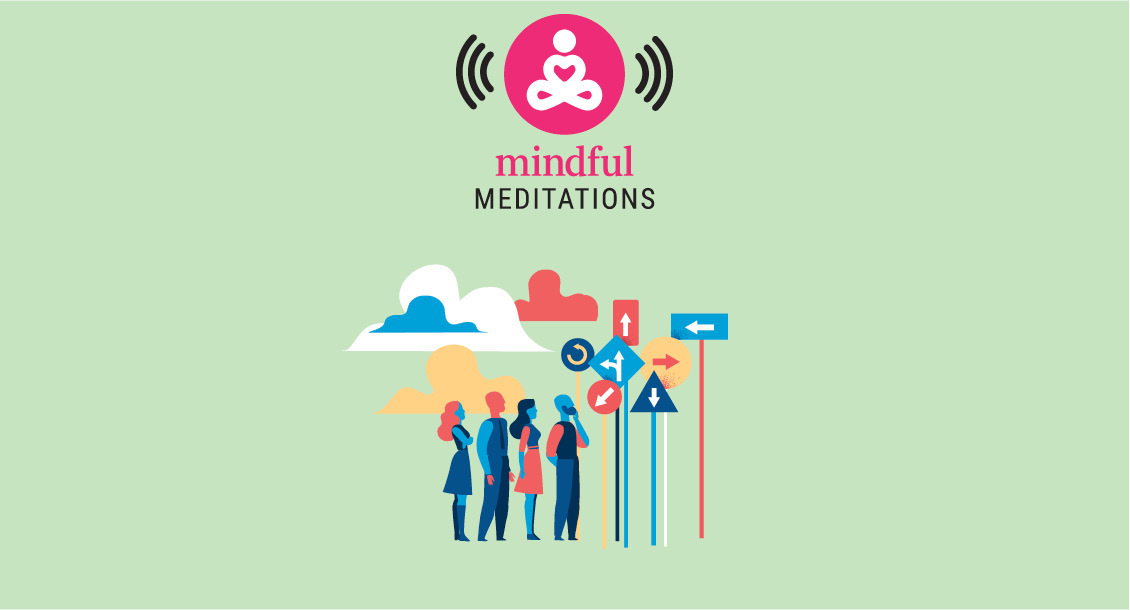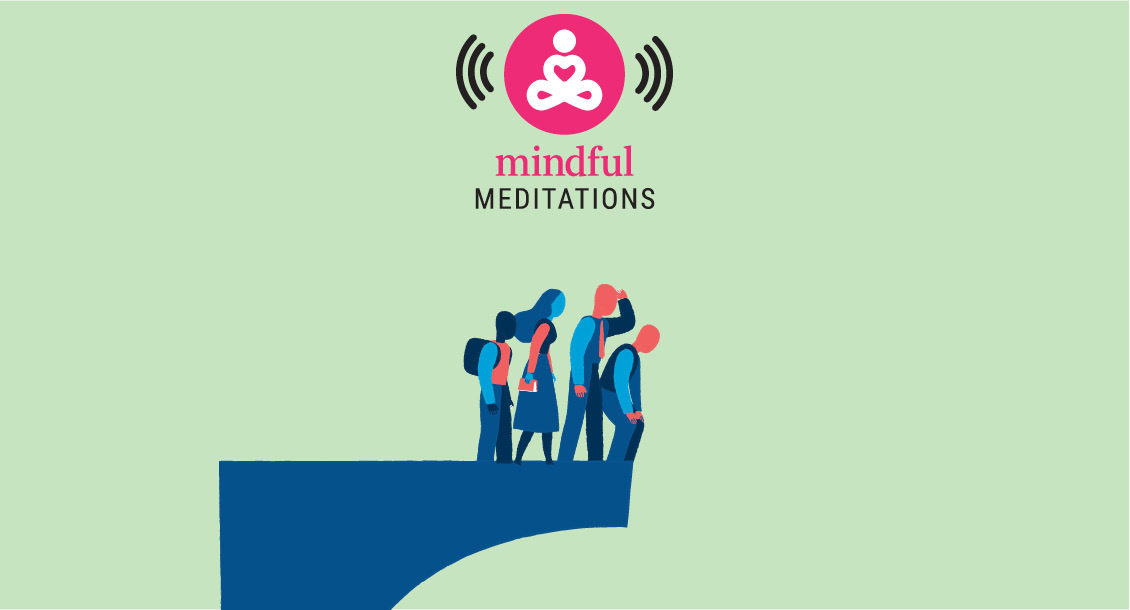I’m Frank Ostaseski, and I’m very glad to be with you today and to be part of Mindful30. I’m co-founder of the Zen Hospice Project in San Francisco and the founder of the Metta Institute. Much of what I have to offer you comes from my teachers: people whom I accompanied through their dying process. I hope that some of what I have to offer will be of small service to you.
Charlie Chaplin said nothing is permanent—not even our troubles. Impermanence is constant change, and it’s woven into the very fabric of our existence. It’s absolutely inescapable, perfectly natural, and our most constant companion. I mean where is this morning’s breakfast? Where is last night’s lovemaking? Where’s my childhood? Could someone please tell me where my blonde hair has gone?
Impermanence is constant change, and it’s woven into the very fabric of our existence. It’s absolutely inescapable, perfectly natural, and our most constant companion
Intellectually, we understand that our mother’s treasured vase will one day fall off the shelf, that a car will break down, that people we love will die. Our work is to move that understanding from our intellect and nestle it deep in our hearts. Each moment dies, and in a very real way, we die with it.
But there’s a beauty to all this impermanence. You know, in Japan, people flock to the hillsides to see the spring blossoming of cherry blossoms—these delicate flowers that last for just a very short time. There’s this cabin where I teach in Idaho, and outside the cabin there are these little tiny blue flax flowers that last for just a day.
Impermanence isn’t the cause of our suffering. We rely on constant change; we rely on impermanence. I mean, that cold you have today: it won’t last forever. And that really boring dinner party that you’re going to go to tonight? It’s eventually going to come to an end. Ancient trees will burn in great forests so new ones can be born. Evil dictatorships crumble.
The gift of impermanence is that it places us squarely in the here and now. Knowing that things inevitably must end causes us not to waste a moment, to step into our life, and live it with integrity and purpose. We let go a little bit more easily, and I think we become kinder to ourselves and to each other. We say I love you more often; we become kinder, more compassionate, more forgiving.
Impermanence is a path to fulfillment and an antidote to regret. Let’s take a few moments to explore the experience of impermanence.
How Embracing Uncertainty Leads To Fulfillment
Watch the video:
Listen to the Audio:
How Embracing Uncertainty Leads to Fulfillment
Follow the Practice:
- Let your body, mind and heart relax. Mindfulness emerges much more easily in a relaxed body, relaxed heart, relaxed mind. Open all the doors of perception; fling open the windows of your senses, of seeing and smelling, of tasting and hearing and touching.
- Now, for just a moment, draw your attention to the experience of hearing. Listen to the various sounds that are emerging, being known, then changing or passing away. Maybe they’re sounds in the room or sounds outside the building. And all these sounds come and go.
- Now, let your attention become a little subtler. See if you can become aware of the silence that’s here as well. Does that silence have any shape? Does it have any boundaries? How big is the silence? You can notice that the silence is undisturbed by the coming and going of sounds. And the same is true of sensations in our body. You can be aware of the sensations on the outside of your body: the feeling of the air against your face or skin, the fabric of your clothing against your skin.
- Allow your attention to become even subtler, so you can listen inside the body. There you might become aware of some tingling or pulsing: the beating of your heart. Quite naturally, without any effort at all, you become aware of the sensations of the breath. Not the thought of the breath, but the direct experience. This breath is completely different from the one that came before; still different again from the one that’s yet to arise. Each breath is completely unique. The same is true of thoughts and emotions arising and passing away moment to moment. And the same is true of all things in life—trees, animals, insects, birds—the inanimate objects of our life: rocks, window-glass, the sun and the moon. Everything is changing continuously.
- For a moment, rest back into the silence. Let yourself become aware of that silence again: the spaciousness of the silence; how everything is coming and going and the silence itself is undisturbed.
Normally, we see impermanence as a cause of our suffering. But when we rest in living awareness, we settle back in. We begin to see that all this change is happening against a background of perfect harmony.
explore session #2
Learning to Love Endings
By drawing our attention to endings and our developed habits about the way we meet endings, we can learn how to step fully into our lives with appreciation and gratitude.
Read More
more mindful meditations
Nourish Compassion with Vinny Ferraro
In this four-part series, you’ll discover the power of compassion and explore how it can help you connect more deeply with both yourself and others.
Read More



